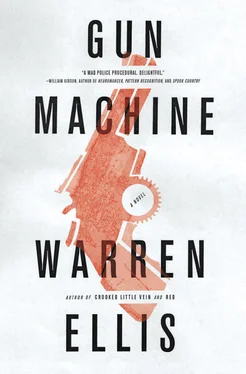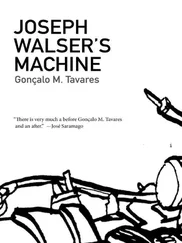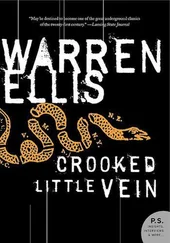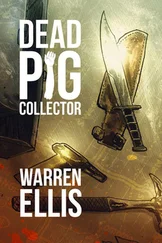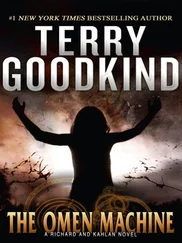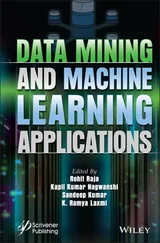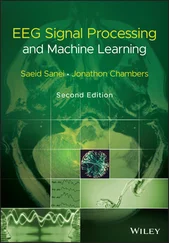He didn’t move. Stared at the back wall of her office. Pictured the guns from Pearl Street there. Conjured them in his vision and continued to scan them for clues, evidence, sense.
Ten minutes later the lieutenant stalked into the room, angry and angular in a black wool Nehru-collared pantsuit with a sharply darted asymmetrical front closure. He wondered if this, too, was new. He also found that he didn’t care.
“I do not like the way you are talking to me lately, Detective,” she snapped, walking around her desk.
Tallow put down his bag, took out the printout, and tossed it on the desk.
“Did you hear me?”
“Read that.”
“Tallow, do you want to be discharged? Do you want me to take your badge and gun right now and have you marched off the premises?”
“Read. That.”
“Tallow, you—”
“Lieutenant, I have a lot of respect for you. You have a hard job, in all kinds of ways, and you handle the pressure from all sides better than pretty much any boss I’ve ever had in the job. But you hung this around my neck, and you are just counting the days until it pulls me down and both it and me disappear from sight. I can understand that. But until what you put around my neck sinks me, you will treat me like a detective in the New York Police Department and you. Will. Read. That.”
She looked at him for a long time. She then turned her gaze to the printout, but he could see her focus vanish, could see that she wasn’t going to give it more than a glance before dismissing it, throwing it in the trash, and moving on to the far more present task of what to do about John Tallow. He directed his thoughts to anything that might be listening in the sky over Ericsson Place right then.
The lieutenant’s eyes skidded off the page, and she pulled the paper off her desk, preparing to crumple it. She glared at him, and then looked at it again, her hand closing.
She stopped. Squinted at something on the page. Slid both sets of fingers around the sides of the page, holding it still and straight.
The lieutenant laid the page back on the desk like it was ticking.
“John?”
He was John now. She was jolted. It simply remained, he thought, to see where she was induced to jump to. His career could be over in the next two sentences, he knew.
“Yes.”
“Are we sure this isn’t CSU playing a prank?”
“Yesterday I met the CSU who did the test. A piece of the gun blew back and took off a chunk of his earlobe. They completed the processing a little over an hour ago. I think it’s fair to say that their fear wouldn’t easily be faked for the sake of a prank.”
“Who else has seen this?”
“The pair of CSUs. Me. You.”
She gave him a look that said she was reevaluating him. “You’re sure?”
“Absolutely.”
“Okay,” she said. “Okay. Do you want to sit down?”
“Standing is fine.” Tallow let a little bit of ice into his voice when he said it. She caught it.
“About the funeral, John—”
“Forget the funeral. What about this?”
She pushed her hair back, worried, eyes darting around the page on her desk. “Tell me what you think it means.”
“I think it means the owner of apartment three A on Pearl Street has or had a contact inside the Property Office and induced that person to steal this gun for a specific homicide. Knowing how incredibly identifiable this gun is, he then dug his own bullet or bullets out of his victim. So we have a gun we can reasonably assume was used for homicide by our man, but no victim to apply it to. It’s my opinion that he used this gun because he believed it had some historical, thematic, or personal connection to the kill.” At which moment, Tallow made a leap of intuition. Or a crazy guess. “Just like we’ll find that Marc Arias, killed in Williamsburg in 2007, will prove to have some connection with the police.”
The lieutenant’s eyebrows shot up. “How do you figure that?”
“He was killed with a Ruger Police Service, a gun they made to sell to police forces, I’m told with not much success. Marc Arias is going to turn out to be a guy connected to the police. Probably not a full-serving officer.”
Tallow knew he was taking a huge, huge chance at this point. Tallow also knew that his brain was moving at speed, and thinking felt like it hadn’t for years. He felt like a runner whose morning start had been hard and harrowing but who had hit the zone where the running was sweet and swift.
She turned to her computer. “You know what the police staffing the Property Office used to be called? The Rubber Gun Squad. Back in the day, they used only police who were on restricted duty or under disciplinary action.”
He watched her input a search string into the networked database. He watched her eyebrow arch again as the Real Time Crime Center component spit back results instantly. She read it off the screen to him.
“‘Marc Arias, in 2007, was a discharged officer of the NYPD whose last posting within the force was…staff at the Property Office.’”
“Lieutenant, you shoved this into my hands when I still had my friend’s blood on my clothes and told me to work the case. I’m working it. But I’ve reached the stage where I’m going to need your help. Are you going to help me, or do I stay out there on my own?”
“Don’t make it sound like you were the lone cowboy on the high desert there, John. But,” she said, holding up a hand as his mouth opened, “I take your point. And while I think this is a little bit thin, and could be entirely coincidental, the fact remains that the gun should be in storage, not in an apartment on Pearl Street.”
“What do we do about that, Lieutenant?”
“I need to speak to someone farther up the chain of command, and very quietly. This is not a news item that needs to be out in the world.” She picked up her desk phone. “Get out of here, John. I’m going to try to get the captain’s next free five minutes, and then ruin his day.”
“I can go upstairs with you, help explain all this and how we got here.”
“Go back to work, Detective. You don’t have experience in explaining things to the captain in baby talk so that he can explain things to the assistant chief for Manhattan South and not sound like a senior citizen with a kilo of Vicodin in his system. Which he essentially is. This is my job now. You go do yours.”
“Okay,” Tallow said, picking up his bag and leaving her office. As he was passing through the doorway, the lieutenant said, in a small voice, to his back:
“I really am sorry about earlier. The funeral.”
Tallow broke step for only a moment, and then continued off the floor and out of the building before all Jim Rosato’s friends and coworkers returned from gently laying him to rest in the warm and welcoming soil of the mainland.
THE HUNTER needed to obtain a weapon.
There were an unpleasant number of conditions placed on his forthcoming work. He needed the weapon by tomorrow. He was well aware of having a limited sum of money at his hideaway here in the south of the island. He could not bear to take the subway. And he knew that the response to his next hunt would be immediate and difficult.
The hunter kept walking west. The modern man in him understood that he was entering the part of New Manhattan called Hell’s Kitchen by most, and Clinton by real estate agents’ store-window ads, but he allowed Old Manhattan to wash up in his vision for a little while, and he contentedly followed the stream that the first Dutch on the island called the Great Kill.
His hand went into his bag, locating and producing first a pair of thin leather gloves, and then a ring. The ring was not the most beautiful piece of handcrafting he’d ever seen, or even that he’d ever made. It was wrapped wire, wide enough to accommodate the gloved index finger of his right hand, and in the crude but tight setting was a piece of quartz he’d found by the mouth of the Harlem River Ship Canal. The hunter had worked it carefully. It stood out just enough from the wire claws of the ring setting and was cut to such a sharp point that it made a functional punch weapon of last resort. The hunter had on one occasion used it to strike open a jugular vein, and on another to destroy a larynx.
Читать дальше
